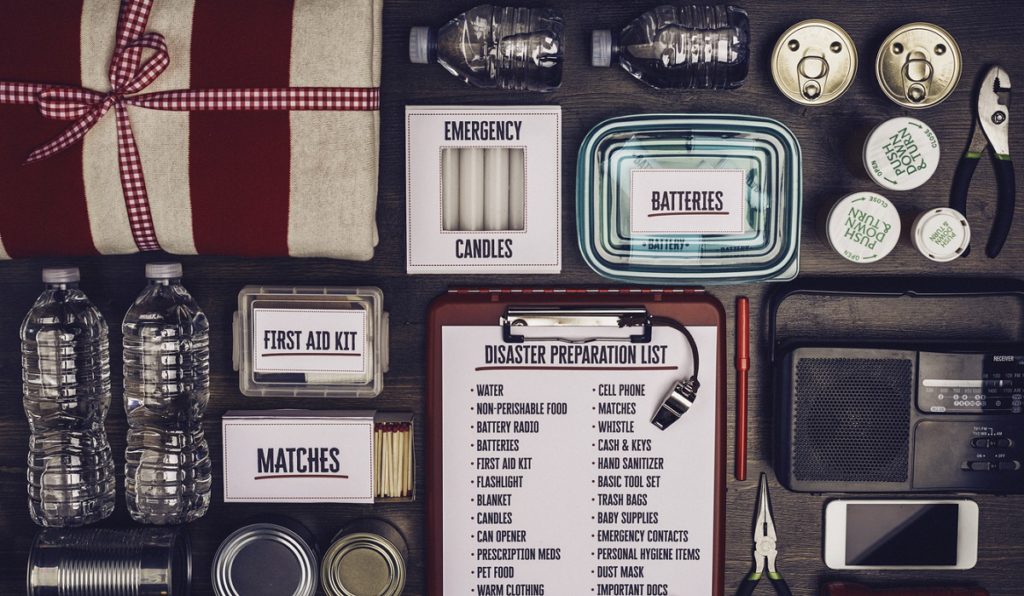The impact and aftermath of this year’s hurricanes, earthquakes, fires and other natural disasters serve as an important reminder to all about the importance of preparing for these events. Earthquakes, storms and fires can take us by surprise, leaving little time to respond safely and effectively. Planning and preparation is essential and this year’s disasters is a warning for all of us to be prepared. For those who have vision correction needs, extra care is needed to ensure the safety of their eyes and vision during and after a natural disaster.
Many have been faced with an unprecedented level of exposure to contaminated flood water. City health officials urge people to stay out of the flood water to avoid illness. Those who have been exposed are instructed to wash their skin thoroughly as soon as possible and seek medical care if water is ingested or has come in contact with open wounds. There are also significant concerns over the safety of the drinking water supply – particularly those who rely on well water.
Access to clean water can also be disrupted after an earthquake, with the potential for water main breaks from the ground shifting. Fires can also impact water service and evacuation centers may need to prioritize bottled water for drinking. People who rely on contact lenses to see well must have access to clean water to keep their eyes safe from infection, which in circumstances such as these can be sight-threatening.
When a disaster strikes, the community’s first responders and volunteers are activated into service at a moment’s notice and face long, hard and often dangerous work to protect the people and property affected. It isn’t surprising that many police, fire and medical response team members choose a laser vision correction procedure like LASIK to ensure their clear eyesight is at the ready too.
We offer the following recommendations for preparing for and protecting your eyes and vision in the event of a natural disaster.
What to Pack in an Emergency Vision Care Kit
- A pair of prescription glasses and a hard, protective case. Even glasses with an old prescription will be better than nothing. If there are water supply and contamination issues during and after natural disaster, contact lenses may not be safe.
- Extra contact lenses or supply of daily disposables. If it is safe to wear and manage contacts, having a clean case and sterile lenses is important to avoid eye infections.
- Small bottles of sterile contact lens solution. Have several on hand in case of contamination after opening.
- Water disinfecting tablets. These products do a pretty good job of rendering water safe when directions are followed. However, like all emergency supplies, they will need to be checked and restocked routinely.
- Soap and hand sanitizer. Contact lens hygiene requires clean hands. Include paper towels in a resealable plastic bag.
- Antibacterial wipes for cleaning eyeglasses.
- Include a copy of your vision prescription with any other required prescriptions in a resealable plastic bag. Having this on hand can make it much easier to get a new pair of glasses if needed.
- Have a safety kit for each person in the house with vision correction needs.
Other Tips for Managing Vision Needs in an Emergency
- Remember, washing your hands is the highest priority for keeping your eyes safe from infection.
- Use bottled water if the water supply is compromised.
- If bottled water isn’t available, tap water can be rendered safe after boiling for at least 5 minutes but 10 minutes is safer.
- Use hand sanitizer if soap and clean water are not available. Wait for hands to completely dry and for the alcohol to evaporate. Then use a small amount of sterile contact lens solution to rinse the fingertip used to insert lenses.
- Glasses may be preferable for safety sake. Not only does it eliminate the risk of infection from handing contact lenses, they may help prevent contact with contaminated water and protect the eye from falling ash and debris.
These recommendations are intended to help increase understanding of what people need to do before, during and after a natural disaster with respect to the health of their eyes and vision. If you need vision correction to see well, taking the extra precaution to ensure you have the vision you need to keep you safe in an emergency is important.






